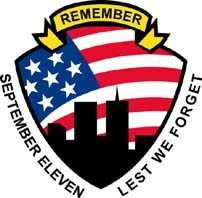9/11 Committee Recommends Mesothelioma Coverage

Firefighters and first responders at risk ofmesothelioma because of 9/11 may finally be getting some help from the federal government.
The World Trade Center Scientific and Technical Advisory Committee has added a list of cancers – including mesothelioma – to the list of illnesses they feel should be covered by the Zadroga Act. Passed by Congress in 2010, the Zadroga Act provides $4.3 billion to monitor, treat and compensate people affected by the 9/11 attacks.
Although cancer was not on the original list of illnesses covered by the act, a number of scientific studies on emerging health effects convinced the Advisory Committee that it should be. Even before first responders began getting sick, a Mount Sinai School of Medicine analysis of the dust and debris in the rubble of the World Trade Center indicated the presence of many known carcinogens, including asbestos. Asbestos can cause mesothelioma, a virulent cancer of the internal membranes.
People with the greatest exposure to asbestos have the greatest risk of developing mesothelioma, although symptoms may not occur for 20 to 40 years. This may explain why a 2011 study of firefighters who worked in the rubble did not find higher rates of lung cancer or mesothelioma, although the rates of many other cancers were higher. The study published in The Lancet found that firefighters who responded are 19 percent more likely to get cancer of all types than the general population.
Although mesothelioma does not originate in the lungs, it often starts with asbestos inhalation and eventually causes symptoms similar to lung cancer. The sharp fibers found in asbestos make their way to the pleural membrane that encases the lung, where they trigger irritation and inflammation. Eventually, that inflammation can lead to changes at the cellular level and mesothelioma develops.
The 15-member Advisory Committee has passed their recommendation for mesothelioma coverage to the National Institute for Occupational Safety and Health director Dr. John Howard who has 60 days to review their recommendations and make a decision.
Sources:
Steenhuyen, Julie, “9/11 firefighters have higher cancer risk: study”, September 2, 2011, Reuters News Service.
Landrigan, PJ, “Health and environmental consequences of the world trade center disaster”, May 11, 2004, Environmental health Perspectives, pp. 731-9.





